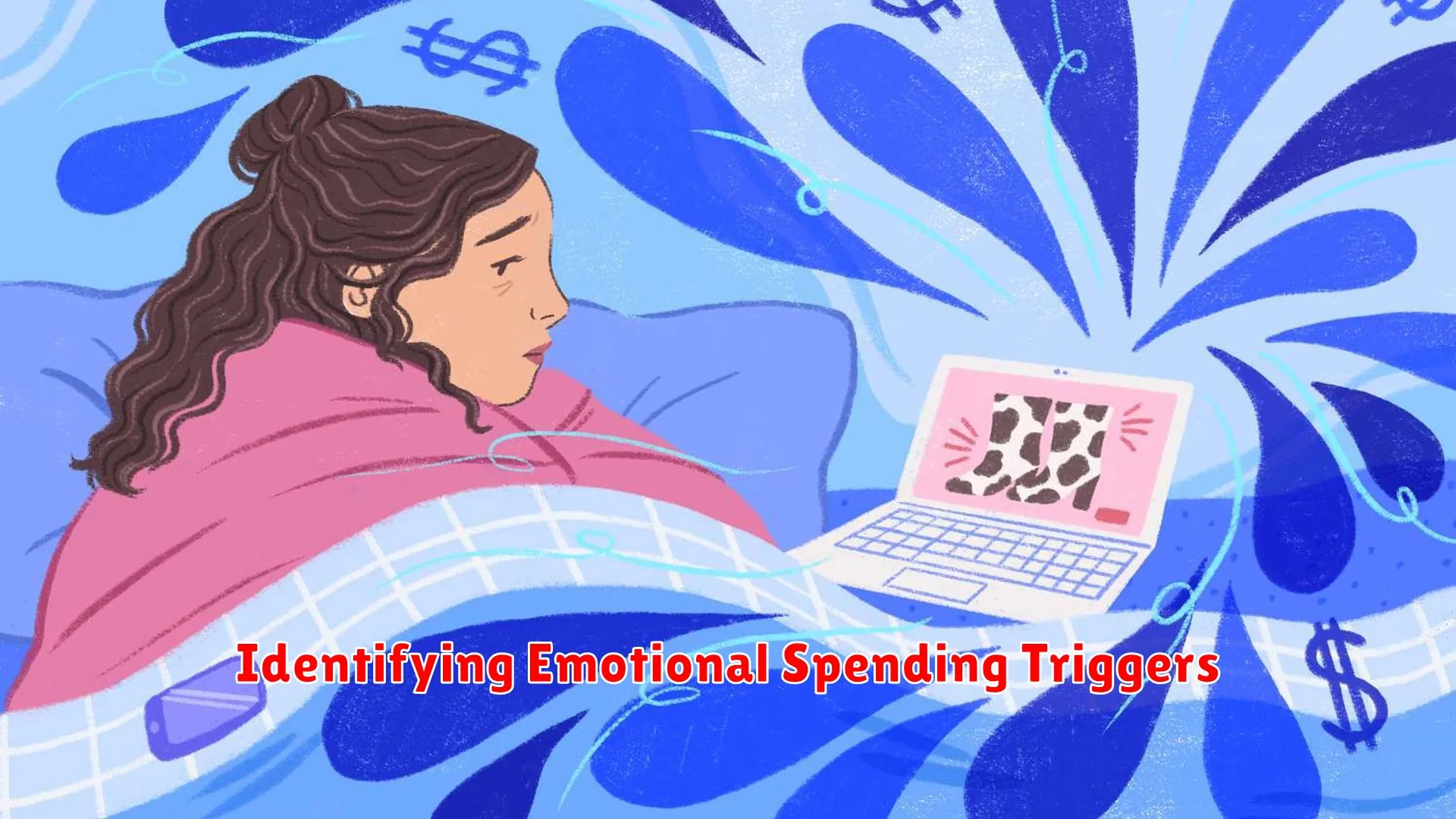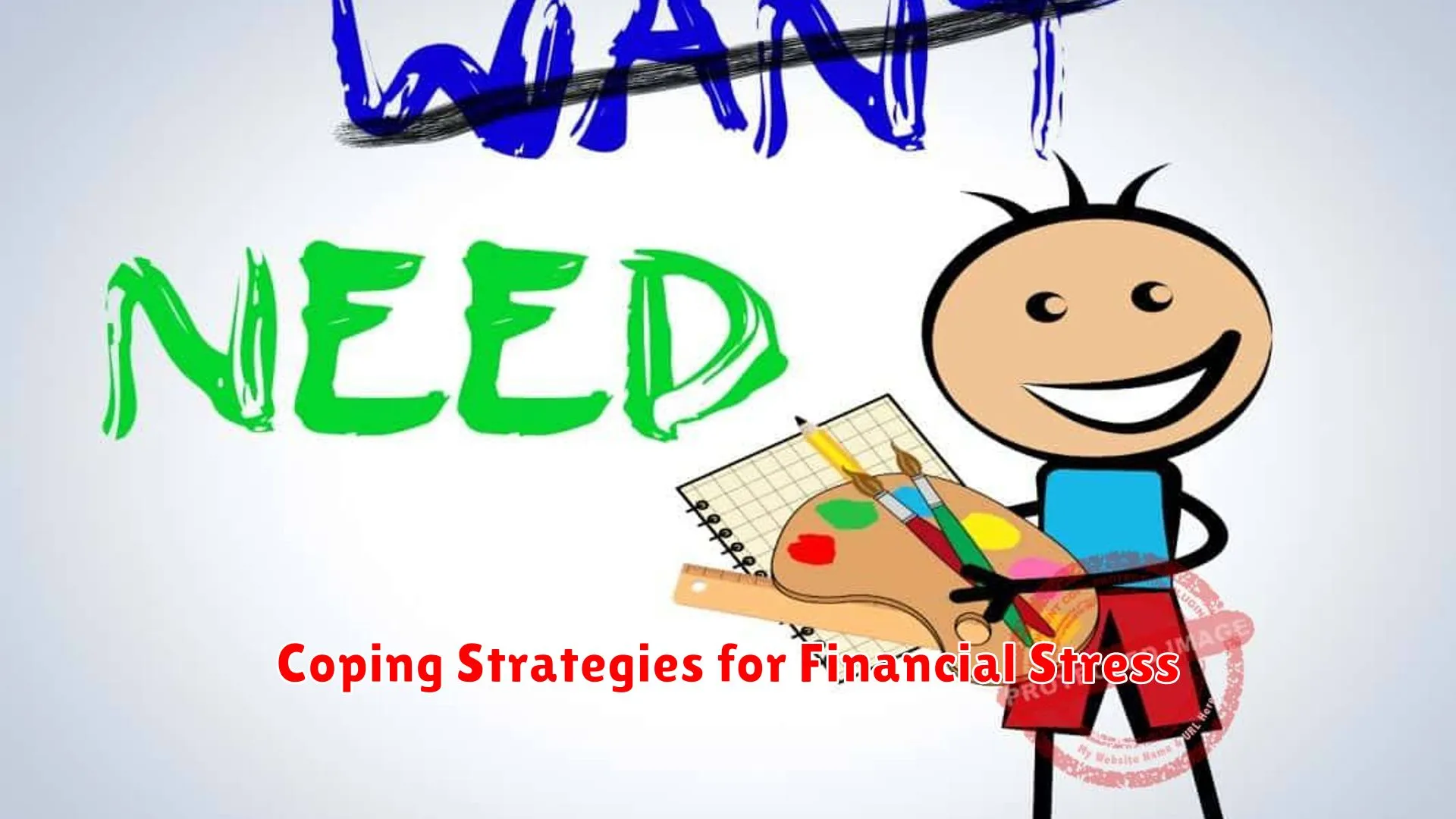Understanding the psychology of spending is crucial in overcoming emotional spending habits. Explore the triggers and strategies to regain control of your finances in our guide on managing your money mindset.
Identifying Emotional Spending Triggers

Emotional spending triggers are often subtle cues or moments that prompt us to make impulsive purchases driven by our emotions rather than practicality. Recognizing these triggers is the first step towards overcoming emotional spending habits. Here are some common triggers to watch out for:
1. Stress and Anxiety
Feelings of stress or anxiety can lead us to seek comfort in retail therapy. When we are under pressure, shopping can provide a temporary distraction or a comforting sense of control. Being aware of how stress affects your spending can help you develop healthier coping mechanisms.
2. Social Influences
Our social circle and societal norms can play a significant role in triggering emotional spending. The fear of missing out (FOMO) or wanting to keep up with friends’ lifestyles may push us towards making unnecessary purchases. Being mindful of when peer influence impacts your spending decisions is crucial.
3. Advertising and Marketing Tactics
Marketers often tap into our emotions to drive consumer behavior. Clever advertising can create a sense of urgency or desire for a product, prompting us to buy on impulse. Recognizing when you are being swayed by marketing tactics can help you make more intentional purchasing choices.
4. Emotional Void or Insecurity
Feelings of emptiness or insecurity can lead to seeking validation through material possessions. Emotional spending driven by a need to fill an internal void can be a red flag. Exploring the root cause of these emotions can help you address them without resorting to shopping as a temporary fix.
By identifying and understanding your emotional spending triggers, you can take proactive steps to manage your finances more effectively and cultivate healthier spending habits.
Developing Healthy Spending Habits

When it comes to understanding the psychology of spending and overcoming emotional spending habits, developing healthy spending habits is crucial. Here are some actionable tips to help you improve your spending habits:
- Set a Budget: Creating a budget is the foundation of healthy spending habits. Be realistic about your income and expenses, and allocate money for essentials first before non-essential purchases.
- Avoid Impulse Buying: Before making a purchase, take a moment to think about whether you truly need the item or if it’s driven by emotional impulses. Delaying gratification can help you make wiser spending decisions.
- Track Your Spending: Keep a record of your expenses to track where your money is going. This awareness can highlight areas where you may be overspending and help you make adjustments.
- Practice Mindful Spending: Before making a purchase, ask yourself why you want the item and how it aligns with your values and long-term goals. Mindful spending can prevent unnecessary purchases.
- Plan for Splurges: It’s okay to treat yourself occasionally, but plan for these indulgences within your budget. Setting aside money for splurges can help you enjoy them guilt-free.
- Seek Support: If you struggle with emotional spending, consider seeking support from a financial advisor or therapist. They can provide guidance and strategies to help you overcome unhealthy spending patterns.
Mindful Money Management

When it comes to the psychology of spending and overcoming emotional spending habits, practicing mindful money management is essential. Mindful money management involves a conscious awareness of your financial decisions and the emotions driving those decisions.
One key aspect of mindful money management is setting clear financial goals. By defining your financial objectives, whether it’s building an emergency fund, saving for a major purchase, or paying off debt, you can align your spending habits with your long-term aspirations.
Additionally, practicing conscious spending is crucial. Before making a purchase, pause and reflect on whether the item brings value to your life and aligns with your priorities. This pause can help you avoid impulse buying and make more deliberate spending choices.
Creating a budget is another fundamental strategy in mindful money management. By tracking your income and expenses, you can gain a clear understanding of where your money is going and identify areas where you can cut back to meet your financial goals.
Moreover, cultivating a healthy relationship with money involves understanding your emotional triggers when it comes to spending. Recognizing patterns of emotional spending, such as stress shopping or retail therapy, can help you address the underlying reasons behind these behaviors and develop healthier coping mechanisms.
Ultimately, by integrating mindfulness into your financial practices, you can gain control over your spending habits, make conscious choices that align with your values, and work towards a more secure financial future.
Setting Financial Boundaries

When it comes to overcoming emotional spending habits, one crucial aspect is setting financial boundaries. These boundaries act as guidelines to help individuals manage and control their spending behavior.
One effective way to establish financial boundaries is by creating a budget. This involves outlining how much money will be allocated to different expenses such as bills, groceries, entertainment, and savings. By setting specific limits for each category, individuals can gain better control over their spending habits.
Additionally, it is important to identify triggers that lead to emotional spending. Whether it’s stress, boredom, or social pressures, recognizing these triggers can help individuals address the root causes of their impulsive spending behavior. Once identified, steps can be taken to avoid or manage these triggers effectively.
Furthermore, communication plays a key role in setting financial boundaries, especially in relationships. Couples or family members should openly discuss their financial goals, priorities, and individual spending habits. This transparent communication can help avoid conflicts and ensure that everyone is on the same page regarding their financial boundaries.
Lastly, self-discipline is crucial in maintaining financial boundaries. It requires self-control and the ability to stick to the established limits, even when faced with temptations to overspend. Developing a mindset of delayed gratification and reminding oneself of the long-term financial goals can aid in practicing self-discipline.
In conclusion, by setting clear financial boundaries through budgeting, identifying triggers, effective communication, and self-discipline, individuals can take proactive steps to overcome emotional spending habits and achieve improved financial well-being.
Coping Strategies for Financial Stress

Financial stress can take a toll on our mental and emotional well-being, often leading to impulsive spending habits. To overcome this, it’s crucial to implement effective coping strategies:
1. Establish a Budget
Create a detailed budget outlining your income and expenses. This helps you track where your money is going and enables you to prioritize essential expenses.
2. Practice Mindful Spending
Avoid making impulsive purchases by taking a moment to reflect on the necessity of the item. Consider waiting 24 hours before buying non-essential items.
3. Build an Emergency Fund
Set aside a portion of your income each month to build an emergency fund. Having savings can provide a sense of security during financial uncertainties.
4. Seek Support
Don’t hesitate to seek help from financial advisors, counselors, or support groups if you’re struggling with managing financial stress. Talking about your concerns can offer valuable insights.
5. Engage in Stress-Relieving Activities
Find healthy outlets to destress, such as exercise, meditation, or hobbies. Engaging in activities you enjoy can help alleviate financial anxiety and improve overall well-being.
Conclusion
To overcome emotional spending habits, individuals must first identify triggers, create a budget, and practice mindful spending behaviors consistently.

